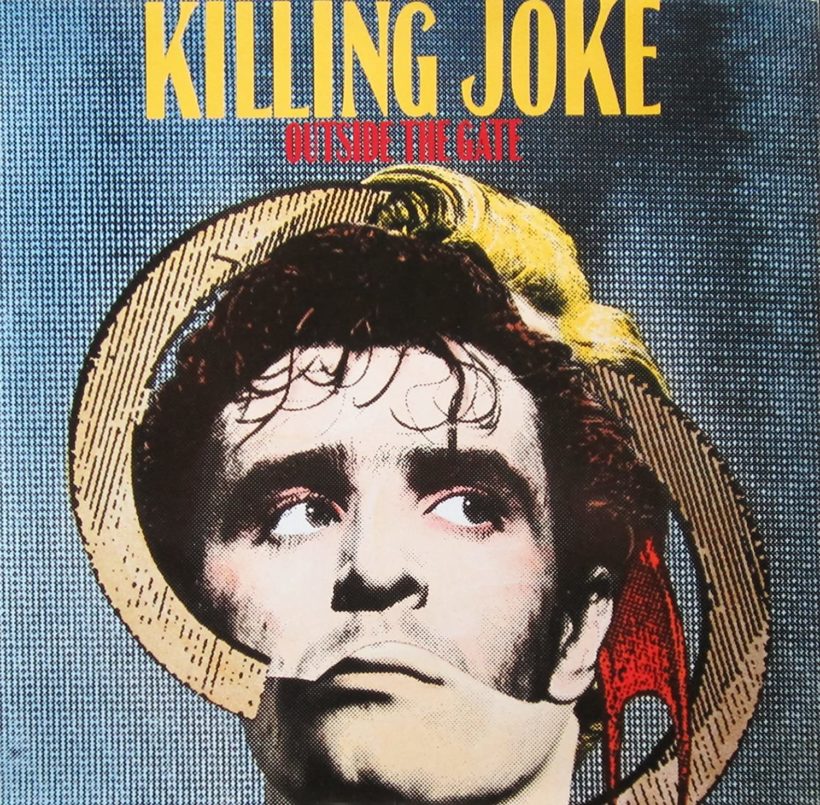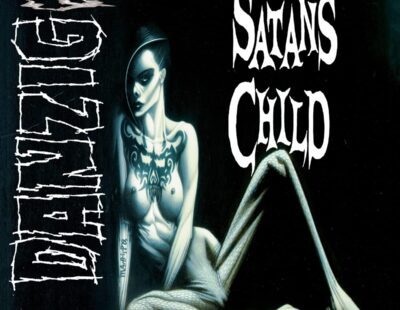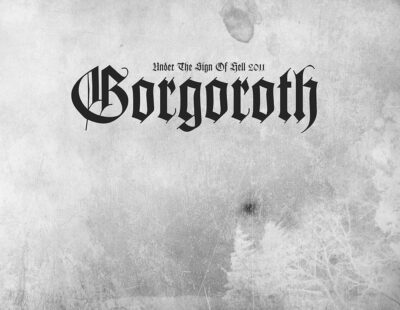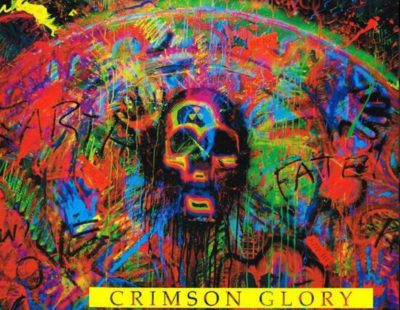
Killing Joke in the 1980s (and late ’70s for that matter) were a curious beast, constantly evolving and transforming from album to album. If you’d never heard them before you probably couldn’t listen to “The Wait” and then “Love like Blood” and think that they were the same band. It’s difficult to listen to the latter and then “Outside the Gate” and draw parallels, and you’d be fucked if you had only heard “Wardance” and someone put “America” on. But that was the shifting sonic paradigms of the post-punk bands in the 80’s, and Killing Joke were miles ahead of the forefront, for better or worse.
Now, it’s not my job to try and convince you that “Outside the Gate” is the best kept secret in the Killing Joke discography (that would be “Democracy”) nor that it’s a particularly good album when compared to, well, anything else in their catalog. But it’s an interesting record and, despite what I just said, it’s enjoyable, even if you won’t often be picking it over the 700 other recordings that they have available. Most importantly, it has a fascinating story and really marks the shift from the post-punk Killing Joke of the ’80s into the industrial-tinged monster they would become in the ’90s onward.
I guess the best comparison would be to look at Outside the Gate like it was their own Cold Lake.
For the last bit of the decade Killing Joke had become more synth heavy, less bombastic, and a bit more in line with stuff like Echo & the Bunnymen, the era of New Order between the last bit of Joy Division but not quite into the rave halls, maybe even the Cure. But much, much darker and menacing. So the idea of them moving into a mostly synthesizer based direction honestly shouldn’t be too surprising. A more cynical way of looking at it is that this was an attempt at riding the more mainstream success of “Nighttime” into the wider arms of a more generalized audience. It was the ’80s, after all, and very few were immune to the siren call of excess, even a band like Killing Joke.
The story behind the record varies from member to member, that it was initially supposed to be a solo record for singer Jaz Coleman but the label wanted it out under the Killing Joke name or that it was written using gematria (an ancient numerical system that is thought to have some kind of magical properties) but the tangible facts remain that this was the album which saw the dispatch of original drummer Paul Ferguson, who wouldn’t be back for a few decades until “Absolute Dissent”, and the departure of bassist Paul Raven, who said “the lyrics and vocals were done as an afterthought”, citing the the whole enterprise as a “pop” record. Their label, Virgin (now known for excessive pollution in the name of their dickhead CEO riding around a bit higher than a normal airplane) dropped them two months after the record was released due to shit sales and spawned the most curious entry into Killing Joke lore, 1989’s “The Courtauld Talks,” a spoken word record (with some minimal acoustic guitar and drums) were Jaz outlines the spiritual meaning behind the techniques used to create the record and the thinking behind it as a whole.
That’s the kind of story that would lead you to think that you were going to listen to some weird fucking pop record that would be referenced by someone on a Sunn O)) record a few decades later, but that’s not really the case. Sort of like listening to your friend’s story of romantic conquest only to find out he came in his pants before the date even left Burger King’s parking lot, “Outside the Gate” doesn’t really add up to its history. But that doesn’t mean it’s without merit.
While most Killing Joke records are defined by guitarist Geordie Walker’s unique and immense riffs, “Outside the Gate” is, at its heart, a synth pop record. A pretty fucking good one, at that. Listen to “The Calling” or “My Love of This Land” and you can see how they stand toe to toe with the giants of that genre. Regardless of the shift in instrumentation, this is still decidedly a Killing Joke record and has their sonic stamp branded upon it.
This is still a very dark record that, if it wasn’t recorded under the name Killing Joke, you would probably hear in most goth clubs to this day. And you could look at it as one of the most important Killing Joke records of their career. Why would you look at something regarded as a “failure” by the press (and at least half of those involved) as such? Because it is the spiritual end to the the Killing Joke of the 1980s who, through experimentation and intense creativity, gave us “Fire Dances,” “Nighttime” and “Revelations” and led to the rebirth into the industrial-esque power house that remains with us to this day.
If I had a “desert island” band it would be Killing Joke, mostly due to albums like “Outside the Gate” which adds variety to an already sprawling history of dozens upon dozens of records. “Outside the Gate” may not be their best record, or even their tenth best, but it’s still got some terrific moments and is a worthwhile listen to those into darker synth driven pop than the majority of the ilk in the 1980s or someone interested in hearing a band take a leap, miss the ledge, but is ready to dust themselves off after the fall and try again.





